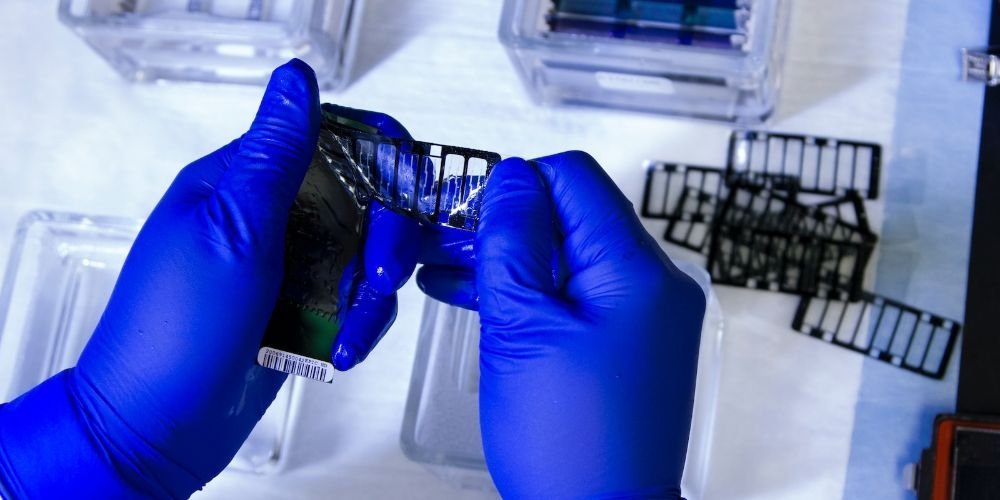Biotech Manufacturing Explained

Data is key to staying ahead in the ever-changing world of biotech manufacturing.
As businesses navigate this complex and ever-changing industry, investors must understand the potential returns of their investments to stay ahead. Meanwhile directors rely on data insights that unlock cost savings while driving performance improvements.
To be successful, they all need accurate information at every turn – providing them with an invaluable edge in this highly competitive landscape.
In this blog, we’ll break down the sector’s fundamentals with all the necessary knowledge at your fingertips – helping you make informed decisions that can build valuable relationships with clients or investors while increasing revenue opportunities.
Jump To:
What is Biotech Manufacturing?
Different Types
Benefits
Challenges
Safety Measures
How IPG Can Help
What is Biotech Manufacturing and How Does it Work?
Biomanufacturing, commonly known as biotechnology manufacturing, revolutionizes traditional manufacturing processes by harnessing the power of living organisms.
Typically employed in the production of food and pharmaceuticals, biotech manufacturing offers significant benefits over alternative manufacturing methods. By utilizing natural processes, biomanufacturing is more eco-friendly, requiring fewer resources and less energy while reducing dependence on non-renewable fossil fuels.
Another great factor shows that waste products can be repurposed, further decreasing its environmental impact. With its numerous advantages, biomanufacturing has quickly become an integral part of the modern manufacturing industry.
Biotech Manufacturing Examples
Biotech manufacturing is an ever-growing arena of possibilities, producing pharmaceuticals that expand and diversify the market.
From enzymes and biofuels to solvents and supplements, there is no shortage of innovative products to meet the needs of various industries.
One fascinating example of biotech manufacturing in action is Enogen® corn, which features a unique thermostable alpha amylase that is produced by the plant during its growth and is only triggered during high temperatures.
This enzyme production reduces costs, improves sugar yields, and decreases water and energy usage throughout the process.
The Different Types of Biotechnology Manufacturing Processes
In the world of biotechnology, the manufacturing process is a critical component in the creation of effective and safe products. From start to finish, every step in the process plays a crucial role in developing the end result.
The process involves a wide range of activities, such as:
- mixing
- granulating
- milling
- molding
- formulating
- tableting
- encapsulating
- coating
- sterilizing and
- filling
Each activity is essential in creating a successful biotech product that meets the necessary safety and effectiveness standards. The responsibility of biotech manufacturing is immense, and it requires a high level of skill and precision to ensure the best possible outcomes

Benefits of Biotech Manufacturing to Industry and Society
Biotech manufacturing has numerous benefits to both industry and society, including:
- Development of new and innovative therapies: Biotech manufacturing helps to create new drugs and therapies that can cure, treat or prevent diseases that were previously incurable or untreatable.
- Increased efficiency and productivity: Biotech manufacturing uses cutting-edge technology and advanced processes that help to improve the efficiency and productivity of the industry. This leads to faster drug development and reduced costs for both manufacturers and consumers.
- Job creation: Biotech manufacturing creates job opportunities in a variety of fields, from research and development to production and distribution. This helps to boost the economy and create more job opportunities for people.
- Environmental sustainability: Biotech manufacturing uses sustainable practices and processes that help to reduce the environmental impact of drug production. This includes reducing waste, using renewable energy sources, and adopting eco-friendly practices.
- Improved quality of life: Biotech manufacturing helps to improve the quality of life for patients by providing them with new and effective treatments for their illnesses. This leads to better health outcomes and a better quality of life for patients and their families.
Challenges Facing the Biotech Manufacturing Industry
The challenges faced in the biotech industry include:
- Investor reluctance to take on the risk of investment in biotech products, which can be exacerbated by the stringent requirements set forth by the FDA, leading to production inefficiencies.
- Supply chain risks, which contribute to the difficulties faced in biotech.
- Overbuilding – during the past years we have seen too many properties being built or converted to accommodate this sector.
- A limited supply of industry experts, making it challenging to find qualified personnel.
To overcome these challenges, strong channel partnerships and collaboration are absolutely essential today.
Safety Measures
Manufacturing has long been associated with dirty, chaotic environments, but biotech manufacturing is unlike any other production facility.
The factory floors are pristine, with state-of-the-art equipment and sophisticated robotic arms that perform precise movements. However, entering such a tightly-controlled environment requires complying with strict safety measures.
Mandatory dress codes, including “plant uniforms” and gowning procedures, are necessary to prevent contaminants from entering the production area.
The air quality in the facility is closely monitored and maintained at a high standard to ensure the integrity of the products. So when you step onto the factory floor of a biologics plant, you know you’re entering a rarefied atmosphere – not just physically, but professionally.
To learn more about safety measures, read this thorough article our client Amgen published.
Rely on Professionals
We hope this blog post has provided you with a better understanding of the fundamentals behind Biotech Manufacturing and that now you are equipped with the information necessary to confidently handle any obstacle coming your way.
If you’re interested in these types of data-driven innovation solutions, then don’t hesitate to contact us – we can help uncover biotech spaces you might not have previously considered or seen.




